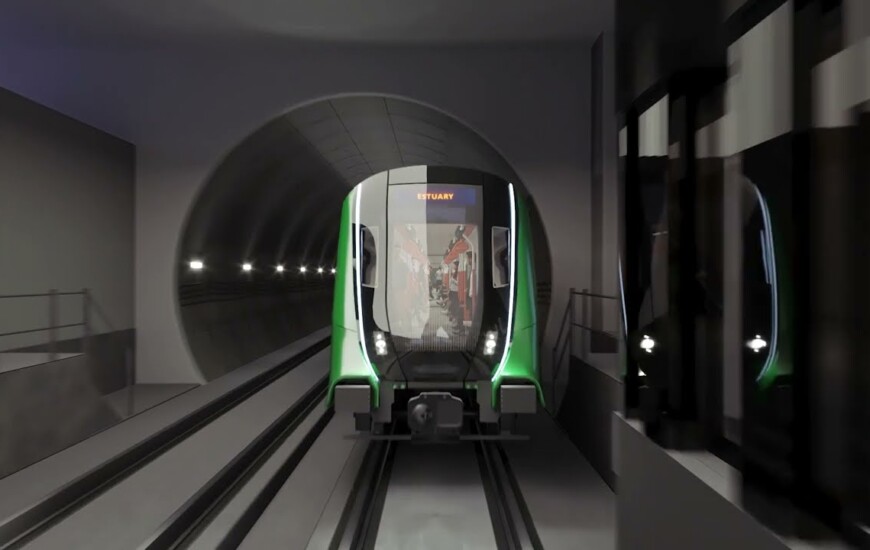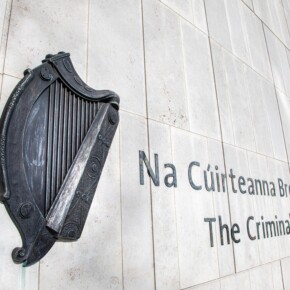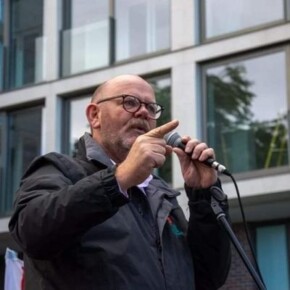Glasnevin residents concerned about Metrolink works
Mike Finnerty 06 Mar 2024
Glasnevin residents have expressed concern about the Metrolink works causing disruption in the area, and have accused An Bord Pleanála of not engaging with them about the works.
The oral hearings into the Metrolink project, which are expected to run until the end of March, are hearing from a variety of stakeholders about the long-delayed project that looks to connect the Northside of Dublin to the Southside by means of an underground tunnel.
Concerns have been raised locally about the working hours on the project.
Concerns have also been raised about the possibility of sinkholes emerging and the impact of traffic during the building process.
Residents were told work would begin at 7.30am on weekdays and 7am on Saturdays.
James Maloney, who represented the contractor at the hearings, said that areas such as Glasnevin station will require 24-hour working hours for lighter duties, seven days a week.
“We will aim to begin at 7.30am and finish at 6.30pm on weekdays and begin at 7am and finish at 1pm on Saturdays,” he said.
He stated that below ground activities limited to standard working hours, and deliveries to the site won’t happen at weekends.
Lorraine Rooney, a resident of the Botanic Road in Glasnevin, told the hearing there has been “little to no liaison” with locals regarding the plans.
“The homes in the area I am representing are over 100 years old, and there is no exact way of knowing how they will react to the ground movement,” she said.
She said that any property owner in the area “has every right to be worried” about the planned tunnel.
The proposed MetroLink Property Owners’ Protection Scheme, designed to financially compensate land and homeowners who will have land or property disrupted by the construction has been called inadequate.
The scheme will be capped at €45,000, but property owners in the area say this isn’t enough.
Anne Meehan of Prospect Architectural Conservation Area said she objects to the construction, saying that she was “disappointed” by responses from Transport Infrastructure Ireland to her written submissions.
“When I read the responses, I felt they were inadequate and generalised and did not address the concerns I hold for my property,” she told hearing.
She said the use of an underground system is “ridiculous”, and favours extending existing overground lines instead.
Concerns were raised during the first week of hearings that the Brian Boru pub, which dates back to the late 1800s, will be knocked down as part of the works.
The pub will be knocked to make way for the Glasnevin station.
In their written submission, owners Michael and Peter Hedigan wrote “the demolition of the premises will remove a building noted for its heritage and connection to the local area” and the demolition would would deprive them of their livelihood.
They note that the pub has been in the family for over 100 years.
The submission noted that the pub was referenced in James Joyce’s Ulysses, which means it is a part of Dublin’s cultural history.
Transport Infrastructure Ireland said the demolition of the pub is a “significant and regrettable impact” but is “necessary” in the context of the works.
They said the demolition was necessary as it would accommodate the construction of Glasnevin Station, which will serve as a key interchange between MetroLink and Irish Rail services.
The Four Masters Memorial Park in Phibsborough is also likely to be disrupted by the works.
The park, which is owned by the Mater Hospital, was given “little or no recognition” with regards the historical nature of the park according to the written submission.
In their submission, the Mater hospital said the the park is used by the park on occasion for patients for “symbolic and historical hospital occasions” and should not be disrupted.
Locally, residents raised concerns about the removal of historic railings and sculptures in the park.
Transport Infrastructure Ireland said that they envision for the park to be reinsnated once work on the Metrolink is fully completed, but with some slight modifications to the landscaping.
They said that the Mater station will be designed with the park in mind, and will look to integrate with the existing architecture in the area.
They stated that there would be “significant impact” during the construction process, but once the work is completed there will be an “improved park for the wider public who will be able to fully avail of its extraordinary amenity value”.
The long-delayed Metrolink project is starting to pick up traction after years of delays, with a mid-2030s date now given for the service to be up and running.
The Metrolink would run from north of Swords to Dublin Airport, then on to Ballymun, Glasnevin, O’Connell Street and St Stephen’s Green before terminating at Charlemont Street.
It is estimated that at peak capacity, the Metrolink will be able to carry over 20,000 passengers in both directions every hour, double the capacity of the Luas at present.
Transport Infrastructure Ireland told the hearings that traffic congestion will cost Ireland €2 billion per year over the next decade if the Metrolink is not built. The proposed route will start at the Estuary station in Swords before taking in Seatown, Swords Central and Fosterstown before serving Dublin Airport itself.
Following on from Dublin Airport, the line will travel down to Northwood, Ballymun, Griffith Avenue, Glasnevin, the Mater and onto O’Connell Street before heading Southside.
It is estimated that the Metrolink will be able to carry 21,000 passengers per hour, helping significantly reduce congestion in Dublin.
MetroLink Project Director Aidan Foley said that in 2021 Dublin was ranked as the 35th most congested city in the world. Foley told the hearing that a single Dublin commuter will, on average, spend over 213 hours a year stuck in traffic, or just shy of 9 days.











